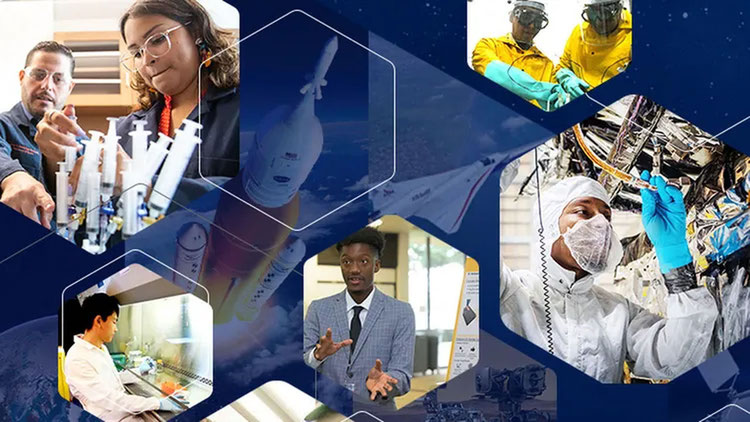Announcing Awardees for the 2025 NASA MUREP Partnership Learning Annual Notification (NASA MPLAN)
NASA MUREP Partnership Learning Annual Notification (NASA MPLAN) selected the following awardees to receive up to $50,000 each:
Arizona State University Campus Immersion
Audio-Visual Question Answering in Space Medicine
Arizona State University Campus Immersion
Complex AI Models Predicting Dose-Rate Cancer Risk
Cerritos Community College
NCAS: Cerritos to Space!
Clark Atlanta University
PHILIA: Physics Informed & LLM Integrated Autonomy
College of the Desert
College of the Desert NCAS Program
CUNY New York City College of Technology
Microgravity Simulation for Lunar In-Situ Build
Cuny Queens College
Integrated Photonic Spectrometer-on-Chip
Delaware State University
Flexible Low Altitude Routing & Elasticity (FLARE)
Elgin Community College
Robotics Rising: ECC’s Path to NASA Innovation
Hartnell College
Ag Tech to Space Tech - Hartnell College
Los Angeles Pierce College
MESA MVP MPLAN NCAS Robotics Competition
Miami Dade College
Mission Directive - Cosmos (MD-C)
North Carolina A T State University
Precision Risk Modeling for Cosmic Radiation
Orange Coast College
NCAS Robotics: Engineering the Future
Pasadena City College - Pasadena, CA
MESA Rocks Robots
Portland State University
Continual-Learning Anomaly Detector for Astronauts
Portland State University
Microgravity Simulator Particle Transport Study
Purdue University Northwest (PNW)
From Nano to Airframe: Smarter Aircraft Materials
Reedley College
Launching STEM Futures - RC NASA NCAS Robotics
Texas State University
STEM Diversity through CubeSat Technology
The University of Central Florida Board of Trustees
Advanced Sensors for NASA Tunnels Characterization
The University of Texas at Arlington
Multidisciplinary CubeSat Experiments and Testbed
The University of Texas Rio Grande Valley
GUARD-AIR: Trustworthy AI for Networked Air Safety
University of Central Florida
A Digital Twin for AAM Communication Channels
University of Hawaii at Manoa
Space System Science and Engineering Education
University of Houston
Kn-dependent Navier-Stokes equation with DSMC
University of Illinois Chicago
Eye mechanics: SANS early detection and monitoring
University of Texas San Antonio
GPU accelerated CFD solver for fluid ejection.
Virginia Polytechnic Institute and State University
Vehicle-Operation Co-Design for Supersonic Flights
West Valley College part of the West Valley-Mission Community College District
West Valley College MPLAN Proposal
The awarded Minority Serving Institution Principal Investigators and their partners are invited to meet with NASA researchers and MUREP representatives throughout the remainder of the year. The meetings serve as training sessions to pursue future NASA opportunities. These trainings will focus primarily on fostering collaboration, enhancing technical skills, and providing insights into NASA's research priorities to better prepare participants for future opportunities.
Congratulations once again to our awardees!



